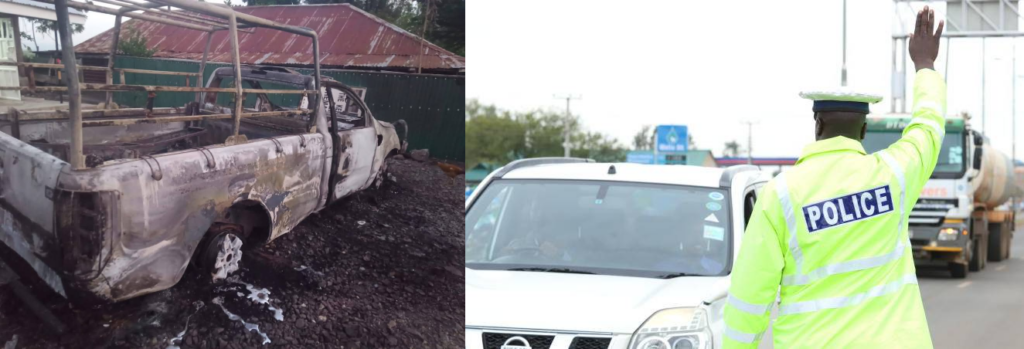As we usher in the new year with hope and renewed aspirations, two incidents have deeply captured my attention, revealing a grave underlying national challenge. First, in Chemase, three days ago a mob stormed a police post, killed a murder suspect, and set the station on fire. This heinous act of mob injustice reflects a disturbing reality that of a growing mistrust in the very institutions meant to uphold the rule of law.
Second, officers from the Ethics and Anti-Corruption Commission (EACC) recently arrested nine traffic police officers for allegedly receiving bribes, endangering motorists’ lives, and effectively turning their duty posts into toll stations. These two occurrences, happening within days of each other in the new year, paint a grim picture of a society teetering on the brink of an institutional and moral crisis.
When citizens lose confidence in their institutions, the consequences are catastrophic. This mistrust erodes the social contract, undermines justice, and breeds lawlessness, putting Kenya’s socio-economic progress at grave risk.
For any nation to prosper, there must be unwavering confidence in the rule of law. Trust in governance is the foundation of peace, security, and economic stability. Without it, investment dries up, societal cohesion unravels, and development stagnates. A police station is meant to symbolize safety and justice; instead, the Chemase incident highlights a failure in the social contract. Similarly, when corruption infiltrates traffic enforcement, it compromises road safety and the economy, with road accidents already costing Kenya approximately 5% of its GDP annually according to the World Bank.
When institutions fail to deliver justice fairly, citizens feel abandoned, fueling mob justice and fostering a culture of violence over dialogue, perpetuating mistrust and injustice.
The Chemase and bribery incidents are not isolated. They are symptomatic of deeper systemic issues: corruption, impunity, and weak institutional accountability. This erosion of trust has profound implications for our great Nation. Economic growth stalls when investors shy away from environments where the rule of law is weak. Social divisions widen as mistrust fosters conflict, and human rights abuses escalate, with innocent lives lost and citizens’ dignity undermined.
To address this pressing challenge, I suggest that we focus on three decisive steps to rebuild trust. First, we must strengthen accountability and transparency. Anti-corruption laws must be enforced without fear or favor, and institutions like the Independent Policing Oversight Authority (IPOA) must be empowered to investigate and prosecute misconduct swiftly. Regular audits and public reporting on institutional performance will foster transparency. How did Rwanda fix this? Can’t we learn from them?
Secondly, investing in civic education and community engagement is crucial. Mistrust often stems from a lack of understanding and interaction between citizens and institutions. Civic education campaigns can inform citizens about their rights and the roles of justice and security institutions. Community policing initiatives can rebuild trust by involving citizens in the administration of security and justice. I keep wondering what came of initiatives like Nyumba Kumi which with adequate funding can further strengthen the bond between the community and its institutions?
Thirdly, adopting technology can play a significant role in eliminating opportunities for corruption. Cashless payment systems for traffic fines and other government services can minimize direct interactions between citizens and potentially corrupt officials. Estonia’s e‑Governance system, which automates most public services, is a testament to the power of technology in reducing corruption and improving efficiency. Surely, can’t we adapt such models to suit our unique Kenyan context?
Kenya faces a pivotal moment, with the Chemase tragedy and bribery scandal serving as a critical wake-up call. By addressing institutional mistrust with urgency, unity, and bold reforms, we can rebuild trust, secure justice, and unlock Kenya’s immense potential. Let 2025 be the year we reclaim our nation’s promise as a beacon of integrity, prosperity, and hope for all. This transformation will not come from pointing fingers but by each of us taking responsibility and acting within our individual spaces. Think green, act green!



